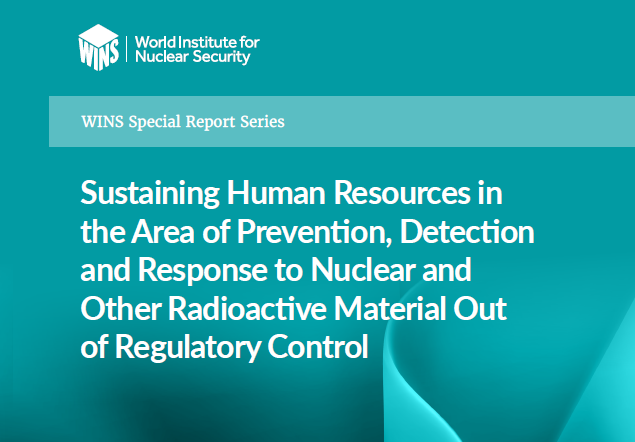WINS has published a new report on a method for ensuring sustainable human resources to combat nuclear and other radioactive material out of regulatory control (MORC).
Co-authored by Vitaly Fedchenko of the Stockholm International Peace Research Institute, the report includes contributions from an External Reference Group comprising four international organisations and representatives of 23 countries.
This Special Report focuses on a critical area: how to make targeted investments in human resource development to combat MORC. It includes a systematic review of the activities and the functions that must be carried out to implement elements of a national nuclear security regime for the prevention, detection, and response to MORC.
“When it comes to developing nuclear security capabilities in a State, the issue that matters the most is not equipment, it is educated, trained and motivated people,” said Dr. Andrei I. Apostol, Nuclear Forensics Working Group Co-chair at the Global Initiative to Combat Nuclear Terrorism.
High levels of competence are required so that personnel can fulfil their roles and responsibilities in their national systems to combat the threat and mitigate the risk arising from MORC. A competence framework, supporting competence statements, and a subsequent analysis of where competence needs to be developed are essential underpinnings for the appropriate investment of resources in capacity building at the national and international levels. A shared understanding of the most important areas for investment in competence development will benefit those that fund this capacity building and those that are the recipients of that funding.
“This review document fully supports a very timely project—which, if successful, will support capacity building activities across the nuclear security, illicit trafficking and MORC fields as well as remind agencies of the importance of law enforcement evidence gathering and judicial processes in dealing with nuclear security and MORC,” said Tom Craik, a member of the Expert Reference Group and work-based assessor at Shared Services Connected Ltd.
The full report is available in our Knowledge Centre. This report was funded by the Government of the Federal Republic of Germany through its Ministry of Foreign Affairs.
